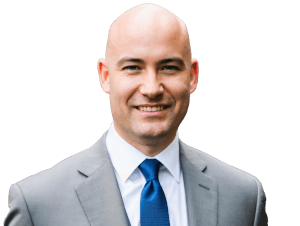Urinary tract infections (UTIs) can happen to anyone, but nursing home residents are especially vulnerable. When staff members fail to catch the signs early, these infections can lead to serious complications. Families trust nursing homes to provide attentive care, and any neglect can have severe consequences.
If you believe your loved one has suffered due to negligence, an Atlanta nursing home urinary tract infection lawyer from Schenk Nursing Home Abuse Law is ready to help. We offer compassionate support and guidance through these challenging times.
For those dealing with infection-related issues, contacting an Atlanta nursing home abuse lawyer can be a crucial step in holding the facility accountable. Schenk Nursing Home Abuse Law is here to provide the legal assistance you need.
Understanding Urinary Tract Infections (UTIs)
A urinary tract infection (UTI) occurs when bacteria, fungi, or viruses invade the urinary system, which includes the kidneys, bladder, ureters, and urethra. Nursing home residents can be particularly vulnerable to these infections.
If your loved one has suffered from such negligence, reaching out to an Atlanta nursing home abuse lawyer could be an important step.
Types of UTIs
There are two primary types of UTIs:
- Lower UTIs: These impact the bladder or urethra.
- Upper UTIs: These affect the kidneys and are more severe.
If you’re concerned about elder abuse in Georgia, addressing possible UTI neglect could be key to protecting your loved one.
For a free legal consultation with a nursing home urinary tract infection lawyer serving Atlanta, call

Causes of UTIs in Elderly Nursing Home Residents
Urinary tract infections are common in nursing homes, making up a significant portion of infections among elderly residents. Multiple factors contribute to the high incidence of UTIs in this population, including neglect and improper care.
Common causes of UTIs in nursing homes include:
- Neglectful Care: UTIs can develop from poor hygiene, unsanitary conditions, and inadequate assistance with toileting. Dehydration and improper catheter management also contribute to the risk of infection.
- Catheter use: Many residents use catheters for medical reasons, but improper care can allow bacteria to enter the urinary tract, increasing the likelihood of infection.
- Immobility: When residents have limited mobility, it can be challenging for them to keep up with hygiene or fully empty their bladder, which increases the likelihood of developing UTIs.
- Cognitive decline: Conditions like dementia can make it hard for residents to recognize or communicate UTI symptoms, leading to delayed diagnosis and treatment.
- Age-related changes: As people age, weakened bladder function and decreased immune response make it easier for bacteria to grow and cause infections.
Atlanta Nursing Home Urinary Tract Infection Lawyer Near Me (678) 823-7678
Recognizing UTI Symptoms in Elderly Patients
Urinary tract infections in older adults can look different from those in younger people. While some may show common signs, others might display more subtle or unusual symptoms, making it harder to identify the issue.
Common UTI symptoms:
- Constant or sudden urge to urinate
- Discomfort or burning during urination
- Dark, cloudy, or strong-smelling urine
- Pressure or pain in the lower abdomen
Atypical symptoms in elderly patients:
- Confusion or mental changes
- Fatigue or lethargy
- Irritability or agitation
- Unexplained falls or changes in daily function
Signs of a kidney infection:
- Fever or chills
- Pain in the back or sides
- Vomiting and nausea
If your loved one is experiencing any of these symptoms and you suspect neglect, an Atlanta nursing home urinary tract infection attorney can provide the guidance you need to explore your legal options.
Can UTIs in Atlanta Nursing Homes Be Prevented?
While not every UTI can be avoided, many can be prevented with the right care. Implementing focused catheter care programs has been shown to significantly reduce infection rates in nursing homes, with some facilities cutting UTI cases in half.
Proper hygiene, regular health assessments, and careful use of catheters play a key role in reducing the risk of UTIs. By focusing on these practices, nursing homes can help improve the well-being of their residents and provide a higher standard of care.
Proactive care and attention can go a long way in keeping residents healthier and reducing the chances of infection.

What Should You Do if Your Loved One Suffers a UTI in a Nursing Home?
If you suspect your loved one has been harmed due to a UTI in a nursing home, take the following steps:
- Reach out to their doctor or request a medical assessment to treat the infection and avoid any worsening of the condition.
- Share your concerns with the nursing home staff, such as nurses, administrators, and the primary caregiver, to ensure the situation is being handled.
- Maintain a thorough record of events, symptoms, and all interactions with staff and healthcare professionals in case legal action is needed.
- Remain actively involved in your loved one’s care to oversee their treatment and recovery progress.
- If you believe the facility isn’t taking proper steps, consider filing a report with local or state health agencies.
If you believe your loved one’s UTI resulted from neglect, an Atlanta nursing home UTI lawyer can help you explore your legal options and seek justice for their suffering.
Recovering Damages in a Nursing Home UTI Case
In a UTI lawsuit against a nursing home, the only available recovery is financial compensation. Judges or juries cannot force the facility to change its policies or operations—any outcome will strictly involve monetary damages.
Nursing home UTI cases fall under personal injury law, and there are several types of compensation available:
- Medical bills: This includes any costs associated with treating the UTI, even if they were not paid by the resident.
- Pain and suffering: UTIs can cause significant discomfort, and a jury can assign a financial value to that suffering.
- Wrongful death: If the UTI led directly to the resident’s death, compensation may be awarded for wrongful death claims.
Speaking with a qualified nursing home urinary tract infection attorney in Atlanta can help guide you through the process.
Protect Your Loved One with an Atlanta Nursing Home Urinary Tract Infection Lawyer
If your loved one has suffered from a urinary tract infection in a nursing home due to neglect, it’s important to take action. Neglect in these facilities can lead to serious health risks, and holding the responsible parties accountable is essential for your loved one’s well–being.
An Atlanta nursing home urinary tract infection lawyer from Schenk Nursing Home Abuse Law can provide the support and guidance you need during this stressful time. We are committed to helping families seek justice and improve the care of their loved ones.
Schenk Nursing Home Abuse Law offers compassionate assistance, working with you to explore your legal options and protect your loved one’s rights. Don’t wait to get the help you need.




